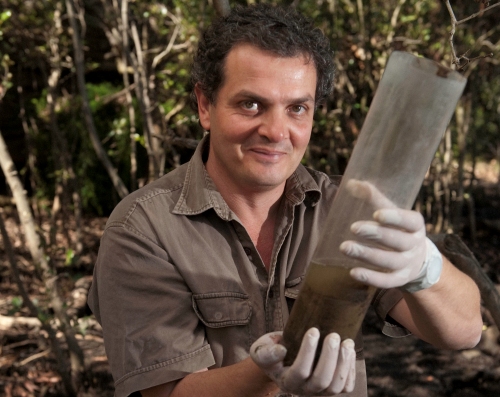 Dr Anthony Chariton collects sediment samples for biodiversity analysis using the new gene chip. Image: CSIRO.
Dr Anthony Chariton collects sediment samples for biodiversity analysis using the new gene chip. Image: CSIRO.
The CSIRO has announced trials of a new technique to determine the impacts of water quality and climate change on the health and biodiversity of Australia’s coastal ecosystems.
Launched on World Water Day, the technique is based on a custom-made DNA microarray, or gene chip, containing sequences from more than 42,000 organisms found at the bottom of oceans and estuaries. A significant proportion of the sample was derived from sites around Sydney Harbour.
CSIRO aquatic ecologist Dr Anthony Chariton said the chip has allowed scientists to examine a greater number of organisms than ever before.
“What is so great about the chip is that we can now look for tens of thousands of different organisms whereas we used to be limited to about 30 to 40 species, which only revealed a tiny part of the whole picture,” Dr Chariton said.
“The traditional approach involves using a microscope to identify and count every organism in a sample – a time-consuming process that requires a highly skilled person to complete.
“The new technique is faster, cheaper, more accurate, more sensitive and can be used to assess biodiversity in all types of marine environments, from Port Phillip Bay to Darwin Harbour.”
The research team will compare samples from impacted sites, such as chemical contaminated or drought affected areas, with samples from pre-impacted or unaffected sites to determine the number and type of species present.
CSIRO molecular geneticist Dr Chris Hardy said this process would provide valuable information on how ecosystems are changing in response to environmental pressures.
“Accurately assessing the health of our waterways is imperative if we hope to protect our ecosystems from human activity,” Dr Hardy said.
Comment below to have your say on this story.
If you have a news story or tip-off, get in touch at editorial@governmentnews.com.au.
Sign up to the Government News newsletter
